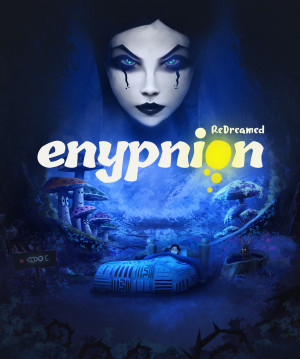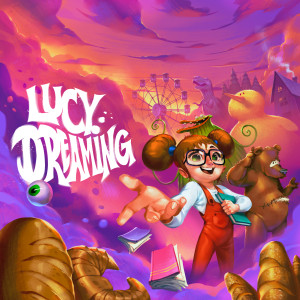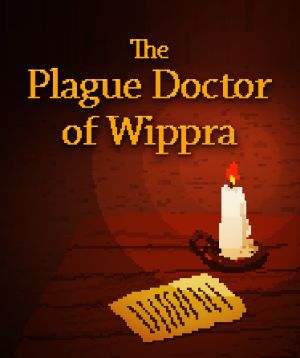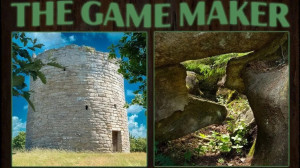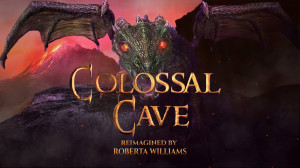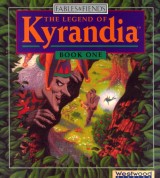Review for Pentiment
__big.jpg)
This review for Obsidian Entertainment's game, Pentiment, was originally published in Hungarian and carefully translated and updated for the readers of Adventure Gamers by the original author.
Obsidian Entertainment, the company known for its fantasy and sci-fi role-playing games received almost universal acclaim from players and critics. It was a great surprise, therefore, when, now operating under the wings of Xbox Game Studios, Obsidian had a go at developing a completely new kind of a game, called Pentiment. Although the game contains familiar role-playing elements, the investigative narrative adventure game itself is primarily set at the beginning of the 16th century and inspired by late medieval and early modern codex art.
Such a bold and artistic development is best suited to an indie studio: the dozen or so developers working on the game took a big risk to see if their new creation would find an audience. From the critical feedback, it seems that despite some minor flaws, Pentiment is an amazingly impressive game, almost as sophisticated and artistic as the surviving codex illustrations from the era.
The protagonist of the game, Andreas Maler, is a young artist who arrives in the late 1510s in the fictional town of Tassing in Bavaria to work on a codex illustration for a nearby monastery called Kiersau. Because of his interest in the arts, philosophy and Luther's teachings, he quickly befriends the enlightened baron Lorenz, who is the patron of the monastery and has connections to some very influential people. However, the baron is murdered the next day under mysterious circumstances, and the abbot now suspects Andreas' mentor, an elderly monk named Pietro, of the crime. And so our hero goes into a private investigation, during which he wanders up and down the city, monastery, and surrounding beautiful landscape only to discover that nothing is as it seems. The city and especially the monastery hide some terrible secrets and concealments. And Lorenz himself was anything but an innocent lamb...
‘Pentiment’ is a word of Latin origin that refers in Art History to a pictorial layer that emerges under another layer that has been repainted or redrawn. The game itself brilliantly, with an ever-increasing excitement factor, unravels these secrets lying beneath the scratched surface, and the new secrets lying beneath those secrets.
We are plunged into a mystical medieval detective story reminiscent of Umberto Eco's timeless novel The Name of the Rose, in which small lies, silences, and tensions in history build up into a river that washes away a monastery and destroys an entire system of ideas and hierarchy.
The early 16th century was a turbulent time in Europe, marked by the emergence of the Reformation, peasant revolts, wars, and new artistic and scientific ideas. Pentiment captures brilliantly the uncertainty and confusion of the people of the time in terms of faith, truth, the world's order, and the church's role. The game doesn't end with the first murder, as Andreas returns to the city with his manservant years later. His investigation this time coincides with the bitter peasant revolutions of 1525. The town is on edge due to tensions between the peasants and the abbot, and another murder could be the spark that ignites the situation. In a recent interview, lead developer of Pentiment, Josh Sawyer explained that he wanted to message players about the similarities between past and present chaos. He compares the search for meaning and purpose in today's world to the search for meaning and purpose in the 16th century. (Umberto Eco in his famous essay “Dreaming of the Middle Ages” draws a similar parallel between the Middle Ages and the modern world.) And just as we often don't get satisfying answers, Andreas' investigation will also not lead necessarily to a reassuring resolution. Indeed, it's possible that collecting evidence could lead to wrong conclusions and innocent people being sentenced to death, which can shape the fate of future generations and our judgment.
I have to admit, that I'm not a huge fan of recent narrative adventure games: I miss the interactivity and freedom that is essential for me for the immersion. I often feel like I'm making artificial decisions in a fake world where I'm just a spectator condemned to monotonous clicking and reading overwritten passages. That's not to say that I didn't encounter any overwritten sections or minor problems in Pentiment, but Obsidian hides them extremely skillfully, like repainted layers in a fresco or codex. The developers were inspired by the indie game Night in the Woods, but I think they far surpassed it. The narrative layers in Pentiment are much more complex and beautifully interconnected.
First of all, there is the main plot thread of the investigation into the murders and the sometimes hilarious and sometimes tragic story of Andreas' growth and burnout. This thread also includes the micro-stories of the residents of Tassing and Kiersau and of the strangers who come to the town, all of which hold exciting surprises. Another layer is composed of Andreas' dreams and fantasies, which give the chapters an allegorical framework and reveal much about his desires and fears. In the introduction to the game, for example, Andreas converses with historical and literary figures in Prester John's earthly paradise or travels on the Ship of Fools. In other instances, he wanders through illuminated codex pages with a nun in an animation style that reminds us of Terry Gilliam’s sketches, or talks to his father, wife, and son left behind in a labyrinth that seems to symbolize his desperate search for a way in his life. Andreas is a prodigal son in some ways, having abandoned his studies early, left his wife, and even committed crimes of all kinds, but it's precisely what makes him such a fallible, lovable figure. Finally, there is a fourth layer of historical and cultural material in the game's background, ranging from Martin Luther and the Reformation to Dürer and Till Eulenspiegel. Medieval and Renaissance art, theology, mysticism, natural science, and history hold this wonderful structure together like an invisible, solid mortar. These ‘academic’ passages are rarely tedious or didactic, and Eco comes to mind again in how skillfully he mixes adventure and teaching.
As Andreas wanders around Tassing and Kiersau, he talks in detail to every citizen, monk, nun, peasant, woodcutter, traveller. Get ready, there's a lot of dialogue in the game, in fact, Pentiment is mostly based on dialogue. Fortunately, the conversations are usually very enjoyable, and even the idle chatter can contain important information that gives a huge boost to the investigation. Andreas's days are strictly time-limited: a rotating calendar marks the 'shifts', divided by meals and capped by a good nap. We can choose at whose table we spend the current lunch or dinner, and snacking is again a great opportunity to pick up gossip. This time limit creates a good sense of tension, keeps the story alive, and puts us under constant pressure to make decisions. Should we sneak into the library at night? We might find secret records, or even observe the amorous tryst of two monks. But we could also easily get caught and lose valuable hours in the morning by going to bed late. Do we join the pagan rituals of the villagers at night to search for our missing servant? Should we get into a good bar mass brawl? Do we believe the terrible visions of the nun digging her own grave? Should we dig up an old grave? This could reveal a dark secret, but also can draw the abbot’s anger down upon us. But what if the monk who snitch on us happens to be the very same monk we caught on the secret rendezvous earlier? Can we blackmail him now? These interconnected, sometimes mutually dependent decision situations are the heart and soul of Pentiment. In some critical moments of choice, a cloud of thought appears above Andreas' head, and the allegorical figures of the frame story, namely Socrates the philosopher, St. Grobian the patron saint of the vulgar people, and Dante's lover, Beatrice, give us rational or vulgar or sentimental advice. And which of these do we take?
Often it is literally a matter of life and death how we decide to direct the conversation in the game, and the consequences of our choices are irreversible. On the other hand, sometimes it is far too evident, that these dialogue options do not influence the outcome of the conversation at all, which can be quite disillusioning. The role-playing aspect of Pentiment involves choosing the background of our hero at the beginning of the story, such as whether he comes from Flanders or Italy, has trained in theology or medicine, is interested in science or occult books, or leads a life of abstinence or is a party animal. However, these choices don't significantly impact the gameplay but rather provide another basis for discussion in the dialogues in the form of well-inserted quotes or thoughts. Andreas indeed undergoes serious character development over the course of two decades. Still, it would have been more exciting if, as a different character, he faced slightly different problems and puzzles and even traveled radically different paths.
I have two more critical comments here. The automatic saving system of the game doesn't allow us to replay some dramatic situations, which can be quite frustrating at the end of the major acts when our bad decisions can lead to the death of innocent people. A manual save option at the end of each day or act could have been included so that we don't have to start from scratch again. The second criticism, if it can be called that, is very subjective and others may not be as bothered by it as I was. At the end of the second act, I found a twist of the story so incorrect and frustrating, that I almost had to put the game aside for good. It's hard to talk about this twist without a spoiler. I have a feeling that Obsidian sacrificed here the motivations of the player on the altar of history because of some strange objectifying attitudes. Pentiment is about how the decisions of an individual can determine the course of history over generations, even at a local level, but this turn was extremely frustrating, even though the third and final act made up for it in many ways.
It was left to the end of this article to praise the game's main asset: the stunning visuals, which are a credit to the handiwork of art director Hannah Kennedy. Probably I haven’t seen a 2D game of such a beauty, and such a magnificent and perfect aesthetic presentation in recent decades. The game is literally a codex come to life, combining the aesthetic of 16th-century woodcuts and illuminated manuscripts. In fact, Pentiment itself takes place within a codex, where the pages turn at every change of location. In the dialogue, the texts are written out with the diligent scribbling of a pen, according to the rules of illumination, in Gothic, "peasant" or even printed letters, depending on the status and literacy of the characters. The creators even included small details like the gradual filling of letters with ink and the occasional mistakes made by an invisible scribe that are later corrected in the text. As the game progresses and the spread of the Reformation and book printing increases in the world around Andreas, calligraphic writing is replaced by printed text and the sound of a printing press replaces the scratching sound of a pen. The turning of the pages, the rustling of the pen, the drying of the paint, correcting errors, blotting, and printing never become annoying as they are incorporated marvellously into the game's aesthetics. Players can even zoom out of the world of the codex pages to view additional features such as marginal notes, a portrait of a current character, a map, and a character sheet in the form of a flipbook.
The swaying flowers, the birds circling in the distance, the twinkling stars, and the breeze blowing through the picture all contribute to a beautiful and mesmerizing atmosphere in the game, enhanced by simple yet powerful sound effects and medieval melodies. The game's creators made excellent use of stylization to depict the facial expressions and gestures of the characters, such as Andreas's single movement, eye roll, and grin, which reveal everything about his state of mind. The piecemeal animation also fits perfectly into the animated codex environment.
Several indie games released in recent years have brought the world of late medieval or baroque illustrations to life, such as Joe Richardson's The Procession to Calvary and Four Last Things, or Apocalipsis, which attempted to vivify Dürer's engravings. However, Pentiment is unique in that it is both a game and an artistic work of the highest standard. Despite its minor flaws and moments of confusion, it is an admirable achievement, a real masterpiece of interactive storytelling. As players wander through the tangled story spanning multiple generations, like Andreas in an ever-expanding labyrinth of his dreams, they eventually reach the quiet landscapes of Tassing full of autumn leaves, entering a new world that may not be better or fairer than the previous one, but promises to bring some calm at least for a while.



